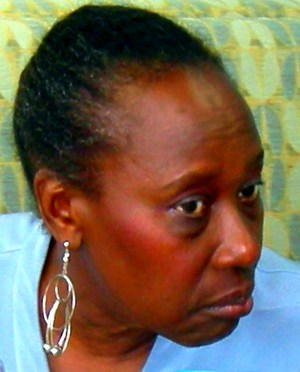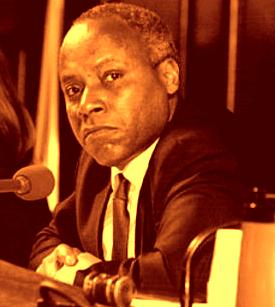
Savage Inequalities is the title of crusader Jonathan Kozol's, iconic and searing look at America's two-tiered, separate, and unequal education system. How well one knows it! In Harlem, where I live, no self-respecting aspirational person dares to send their precious progeny to the local PS. Local is the operative word, as even uptown there are several specialized public centers of learning, like the Mott Hall School, renowned for doing an exceptional job of teaching. 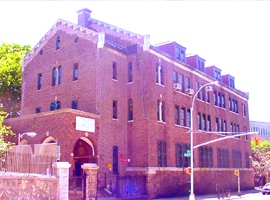
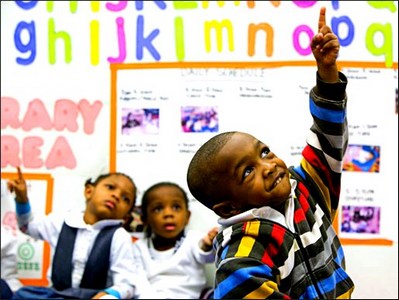
Parents, all of them potentially, are the ancestor of the person who will cure cancer, end the AIDS epidemic and solve the problem of climate change; what a responsibility, whew! Is it any wonder that those who are able send their cherished offspring to the best schools they can find?
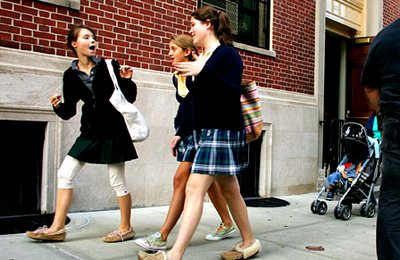
In every gentrifying neighborhood, irrespective of race, early in the half-light and cold weather, one sees them, these children of privilege, heading off to start their day elsewhere, launching bright futures. When you consider, for one, the fate of a prosperous African America friend, of a slight acquaintance of mine, it's no wonder.
Raising his family in an up-scale totally white suburb, utterly different from the surroundings of his boyhood, their farther worried that his own kids were becoming elitist, unaware and intolerant. The cure seemed to be moving to his old neighborhood and restoring one of those great old brownstones, just as a few pioneering white people are doing. Since their mother had misgivings, their farther promised they could attend a top-notch, but integrated school, located on the campus of the prestigious university downtown.
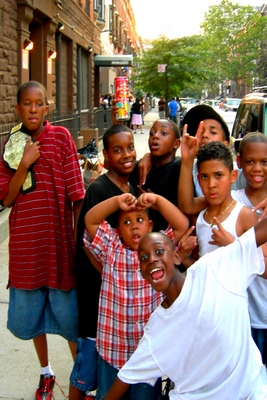
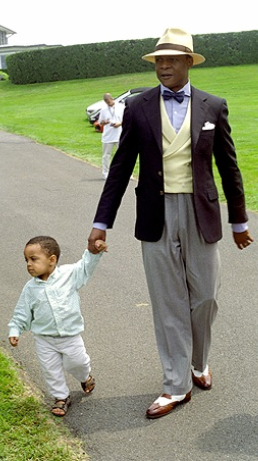
Their oldest son made friends with a kid his age from the neighboring housing project. But this, after all, was his father's point; since he had grown up in the projects too, and hoped such relationships would both make his boy more aware of his relative good fortune and impart greater empathy as well.
Their block was among the most beautiful, historic and best maintained in the hood. And soon even the children's mother was telling her friends back in the sprawling suburban wasteland they'd just 'escaped', how fantastic their lovely new home was.


Playing out front, where their parents could hear and see them, the kids were certainly safe. Yet it wasn't a matter of their son's friend being a gang member, but that some bully in the same complex where he lived was, and this proved to be problematic.
Seeing his friend attacked with a switchblade, exhibiting the very sense of fair-play and loyalty his parents had both hoped to instill, their son had leapt to defend his friend. He was stabbed and died in their arms on the marble doorstep of their restored showplace. Their kids enjoyed every advantage, attending the finest schools, but still it wasn't enough. Bereft, distraught and bewildered, their parents soon divorced.
Naturally, and eagerly, everyone awaits the time when happy days are here again! For now, even the stock market is looking up. But what will next month bring?
Could the economic downturn come to be viewed as far more than a harrowing, once-in-a-lifetime disaster? Before hard times end, might they offer us the opportunity to address some chronic problems we've avoided in the past? Could our adversity be a disguised chance for change, whereby affordable health care becomes a universal right, and public school education, everywhere in the country, is made as good, academically, as the expensive private instruction President Obama's daughters are getting?
Even in New York plenty of people are sure to feel somewhat skeptical of implementing such possibilities. But at least one vocal detractor I know, upset over what's happened to schools here, teacher Sylvia Tyler, unexpectedly, can't be counted among them. She is a 30-year veteran of the nation's second largest, but perhaps most challenged school system. Asked how she feels about President Obama's prescription of personal responsibility, as at least a partial cure for what ails schools; she responds unreservedly, "I agree, 100 percent! "
"We desperately need students, parents, teachers and administrators to accept their role in improving education. Everyone has a part, but Obama is right to emphasis the crucial part played by parents."
Endorsing the president's call for parental intervention, Ms. Tyler observes, "When you are working with success-oriented families, you, a teacher, can do a lot to motivate a pupil to explore and think. But without someone to monitor the junk that kids like to eat, to prevent them from staying up all hours, or see to it that they have some breakfast, what can a teacher do?
Now, I'm not being all naïve, or ignoring the tremendous obstacles some parents face. Many are woefully unprepared or have a lot to deal with otherwise. Emotionally, in most ways, some have difficulty undertaking the responsibility of parenting in the first place. So we can't attack their efforts; parents have to be approached with respect and tact, to be supported and reinforced.
Insisting how, 'Even when they do things that might seem monstrous, that kids are not monsters, but children,' she recalled the frustration of one single parent. "This mom complained of her 11-year-old son,
'Miss Tyler, I give up! I'm fed up; he's hard-headed, a hand-full!" I had to just sit her down and try to talk to her. 'But he's your child' I said, 'It's a difficult world out here,' I reminded her, 'If you are not in his corner, who will be there for him? He needs you! Even though he might not know it yet, I know, you know it!'"
In case you're wondering about Sylvia Tyler's take on the controversy of mayoral school control, granted to Mayor Michael R. Bloomberg and now due for reauthorization by the state legislature, it might not surprise you to learn that she finds this piece of public policy to be deficient too. "Mayor Bloomberg?
Wow, what is there that's good to say about him? Well, one thing is, that it used to be in our older schools in Harlem and the Bronx where I've worked, that not only were the bathrooms insufficient, but even soap and paper towels would always run out. That's not a problem now though. Otherwise I can only say that Koch, Giuliani and even Dinkins, might have been bad news for parents and teachers, but Bloomberg, pitting groups against each other, substituting community input for his rubber stamping PTP, he's much, much worse. It's because of the unchecked authority he welds. "
The Mayor's Panel for Educational Policy, referenced by Tyler, replaced the Board of Education. Most of the panel's members are appointed by Mr. Bloomberg and can be removed at any time. In 2004, several were, when they opposed the Mayor's plan to end social promotion in the third grade.
The frustration of feeling they are powerless to be heard, has several parent groups throughout the city confronting the Mayor in court and appealing to their representatives in Albany and Washington. Such activism seems to be paying off, too. On May 6, 2009, the New York Times reported that state lawmakers are busy debating one proposal that would have the mayor appoint just 6 of the 13 members of the PTP, instead of eight.
Widely respected as an activist for social justice issues, State Senator Bill Perkins, who represents Harlem and a part of Washington Heights, is particularly adamant. In a recent, sometimes contentious exchange with Joel I. Klein, the city schools' chancellor, he declared,
Reiterating the now-familiar complaints of parents who feel rebuffed and shut out of the school system and those lodged by good-government groups who charge that oversight of the Department of Education's budget is inadequate, other legislators seem unconvinced of what Mr. Klein trumpets as some of the administration's great accomplishments. Increases in graduation rates and improved test scores are indeed dismissed by some, who insisted, "that these vaunted gains would have been impossible, without either devalued standards or relaxed criteria." 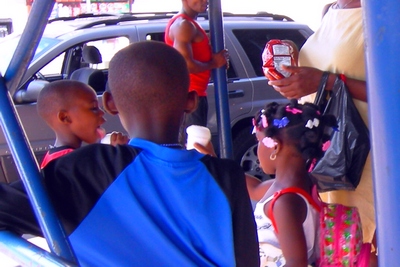
Impassioned in defending Mayor Bloomberg's adamant opposition to giving any parental panel or board veto power, as some favor, Chancellor Klein bristles,
"If you have divided authority, what you have is no one in charge...An independent board would return this city to the politics of paralysis."
But the other day, Brooklyn's Democratic State Senator Kevin Parker, seemed to be speaking for many of his colleagues, when, near an education committee hearing's close, he categorically disagreed with Klein, saying,
"I object to this false dichotomy of total control and going back to the way things were..."
Sylvia Tyler says that by now, such "grandstanding" on the Mayor's behalf, is tiresomely common to her and many of the concerned teaching professionals with whom she frequently talks. "When you take that step of determining that you will teach in a public school, having made an investment of time and money comparable to a law or business student's, but no way as remunerative, in most cases you have a certain amount of objectivity. Parents, on the other hand, are harassed by bills and one-hundred and one other priorities. They would like to have an easy answer for everything, one that's arrived at, without a lot of extra work, and you can bet their kids are just like them."
Suppressing an infectious laugh, that a mere moment before had infused the entire room with mirth, Ms. Tyler continued with evident seriousness of purpose,
"All over, Bloomberg is deluding people! He's deluding overwhelmed parents and making them feel that tests are an absolute empirical measure of their children's progress and success... "
In their post, What We Learn From School Tests, of April 28, 2009, 7:30 pm, the Times editors, citing a cadre of experts, made some interesting findings about the state of public schools in the U.S..
Sandra Stotsky, a professor of education reform at the University of Arkansas, identifies one difficulty as,
"Huge numbers of high school students have not been challenged to read much that is beyond middle school level in difficulty and complexity."
If so, they have unfortunately missed the fun of reading the output of Sandra Tsing Loh, a contributing editor for The Atlantic. A great stylist, she has just written a stimulating, insightful, highly entertaining and mostly spot-on account of education in L. A. It's related from the perspective of having enrolled her daughter in a public magnet school. A highly affordable alternative to one of the private academies where her friends educate their kids at $60 thousand a pop, it's been a far better experience than Ms Tsing Loh had dared to hope for, making it easy for her to offer,

"How do we close the education achievement gap between whites and minorities? The answer is obvious, if apparently untouchable in public policy today: Integrate the schools...bring back the integration efforts of the 1970's, not through busing but via better-run magnet systems!"
Marcelo Suárez-Orozco, a professor of globalization and education at New York University and co-director of its Institute for Globalization and Education in Metropolitan Settings, agrees,
adding, "Is it any surprise that a tricolor achievement gap (black-white-brown) remains the elephant in the classroom?... - Finland now leaves us in the dust on multiple measures of school achievement... No Child Left Behind is blinding us...millions of children of color... are attending the segregated factories of dystopia we call inner city schools. We need to leave behind the culture of high-stakes tests and build one of engagement... we need to educate, not test..."

On the exact same day I read this critique, I received an E-mail from my sister, Athena. Typically, it was also provocative, if simplistically counter intuitive. 
The most powerful politician in the world is Black...The head of the Republican National Committee is Black...The best known media mogul on earth is Black...The greatest golfer in the world is Black...The top female tennis players in the world are Black...The highest grossing actor worldwide is Black...The fastest racing driver in the world is Black...The brightest astrophysicist under the sun is Black...The Superbowl-winning head coach is Black...The most successful brain surgeon in the world is Black...The fastest human on the planet is Black... Michael Jackson must be kicking himself in his lily-white ass.
What made Athena's 'joke' not as funny to me as it probably was to friends and co-workers she blasted, was appreciating how such seemingly glowing stats mask the grimmer reality of most American young people lagging behind our future competitors world-wide, with black and Latino youth failing at an even greater rate than white students are. 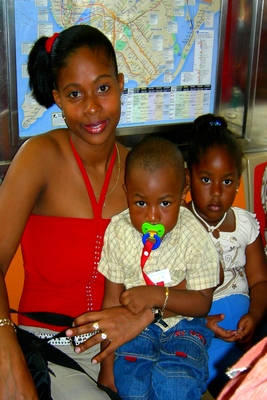

Of course Athena's bon mot was at least appreciated as one small measure of how many minorities, once afforded previously denied access, are able to excel to a degree that few would have predicted was possible. Unfortunately then, judged by tests, instead of by witticisms most young students of color, are still awaiting the promised, "all deliberate speed" with which equal education opportunities were offered by the Supreme Court's Brown-v-Board of Education decision in 1954.


